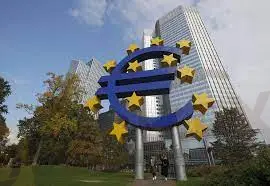简体中文
繁體中文
English
Pусский
日本語
ภาษาไทย
Tiếng Việt
Bahasa Indonesia
Español
हिन्दी
Filippiiniläinen
Français
Deutsch
Português
Türkçe
한국어
العربية
Eurozone HICP Preview: Forecasts from six major banks, not peaking yet
Abstract:The eurozone will release its April Harmonised Index of Consumer Prices (HICP) report on Friday, April 29 at 09:00 GMT and as we closer to the release time, here are the expectations forecast by the economists and researchers of six major banks regarding the upcoming EU inflation print.

Expectations are for HICP to rise further to 7.5% YoY in April (prev. 7.4%), with the core metric (ex-food and energy) seen rising to 3.3% YoY (prev. 3.2%).
Commerzbank
“The inflation rate in the euro area is expected to remain unchanged at 7.4% in April. Oil and gas prices have fallen again somewhat after the dramatic increase in March, and some countries are relieving consumers with discounts at the pump station or tax cuts. Therefore, consumer prices for energy in April are likely to have risen somewhat less YoY than in the month before. However, the rise in energy prices is increasingly reflected in the prices of other goods. In addition, the renewed lockdowns of megacities in China are exacerbating global supply problems and driving up the cost of intermediate goods. Accordingly, the core inflation rate is likely to have risen from 2.9% to 3.4% in April. The inflation rate in the euro area is not expected to fall sustainably until the summer, provided that energy prices start to fall again as we expect. However, the underlying upward pressure on prices will probably continue to strengthen.”
Danske Bank
“Inflation risks remain skewed to the upside despite the latest stabilization in oil, gas and electricity prices. We look for a further climb in the headline HICP rate above 8%, with core inflation remaining elevated at 3.1%, keeping the pressure high on ECB to proceed with its policy normalisation.”
ING
“The eurozone is anxiously awaiting the next inflation figure, which will no doubt be above 7% again. The question is mainly whether it is again higher than the 7.5% seen in March or whether the decline in oil and gas prices since early March has translated into a small drop in headline inflation. We expect the former to be the case, also because of second-round effects from energy prices on core inflation.”
SocGen
“After nine months of consecutive increases, we expect HICP to fall by 0.1pp to 7.3% in April. Conversely, we think core inflation will continue to accelerate to 3.3% YoY, up from 2.9% in March.”
Nomura
“We forecast only a small further rise in euro area HICP inflation in April to 7.6%, with lower fuel prices (petrol prices fell during the month as oil prices dropped) counteracting somewhat our assumption of a rise in core inflation.”
Citibank
“Energy price likely dropped sharply in April and while the peak in energy inflation may be behind, we still expect strong MM prints for food HICP and non-energy goods. Domestically-generated services inflation to remain subdued but overall, headline inflation should tick higher to 7.6% and core to 3.4% YoY.”

Disclaimer:
The views in this article only represent the author's personal views, and do not constitute investment advice on this platform. This platform does not guarantee the accuracy, completeness and timeliness of the information in the article, and will not be liable for any loss caused by the use of or reliance on the information in the article.
Read more

The Ultimate Guide to Automated Forex Trading in 2025
Modern markets are revolutionized by automated trading systems, which now execute 70-85% of all transactions. These advanced automated trading software solutions, commonly called trading robots or Expert Advisors (EAs), leverage algorithmic precision for automatic trading across forex, stocks, and commodities 24/7. By removing emotional interference and executing trades in microseconds, auto forex trading platforms create fair opportunities for all market participants. For those new to automated trading for beginners, these systems provide disciplined, backtested strategies while significantly reducing manual effort.

Will natural disasters have an impact on the forex market?
The forex market is known for its rapid responses to global events, but the influence of natural disasters, such as earthquakes and typhoons, can be less straightforward. While headlines may scream about catastrophic damage and economic disruption, the long-term effects on currency values often depend on a blend of immediate shock and underlying economic fundamentals.

Philippines Deports 29 Indonesians Linked to Online Scam Syndicate in Manila
Online scam groups in the Philippines trick Filipinos into gambling and love scams, from Manila to Bacolod, causing trafficking and pain as police fight back.

Why does your mood hinder you from getting the maximum return from an investment?
Investment decisions are rarely made in a vacuum. Aside from the objective data and market trends, our emotions—and our overall mood—play a crucial role in shaping our financial outcomes. Whether you’re feeling overconfident after a win or anxious after a loss, these emotional states can skew your decision-making process, ultimately affecting your investment returns.
WikiFX Broker
Latest News
How Crypto Trading Transforms FX and CFD Brokerage Industry
UK would not hesitate to retaliate against US tariffs - No 10 sources
FCA Warns Against 10 Unlicensed or Clone Firms
CySEC Warns Against 14 Unlicensed Investment Websites
Top Currency Pairs to Watch for Profit This Week - March 31, 2025
Will natural disasters have an impact on the forex market?
Philippines Deports 29 Indonesians Linked to Online Scam Syndicate in Manila
Navigating the Intersection of Forex Markets, AI Technology, and Fintech
Exposed: Deceptive World of Fake Trading Gurus – Don’t Get Fooled!
AI-Powered Strategies to Improve Profits in Forex Trading
Currency Calculator







